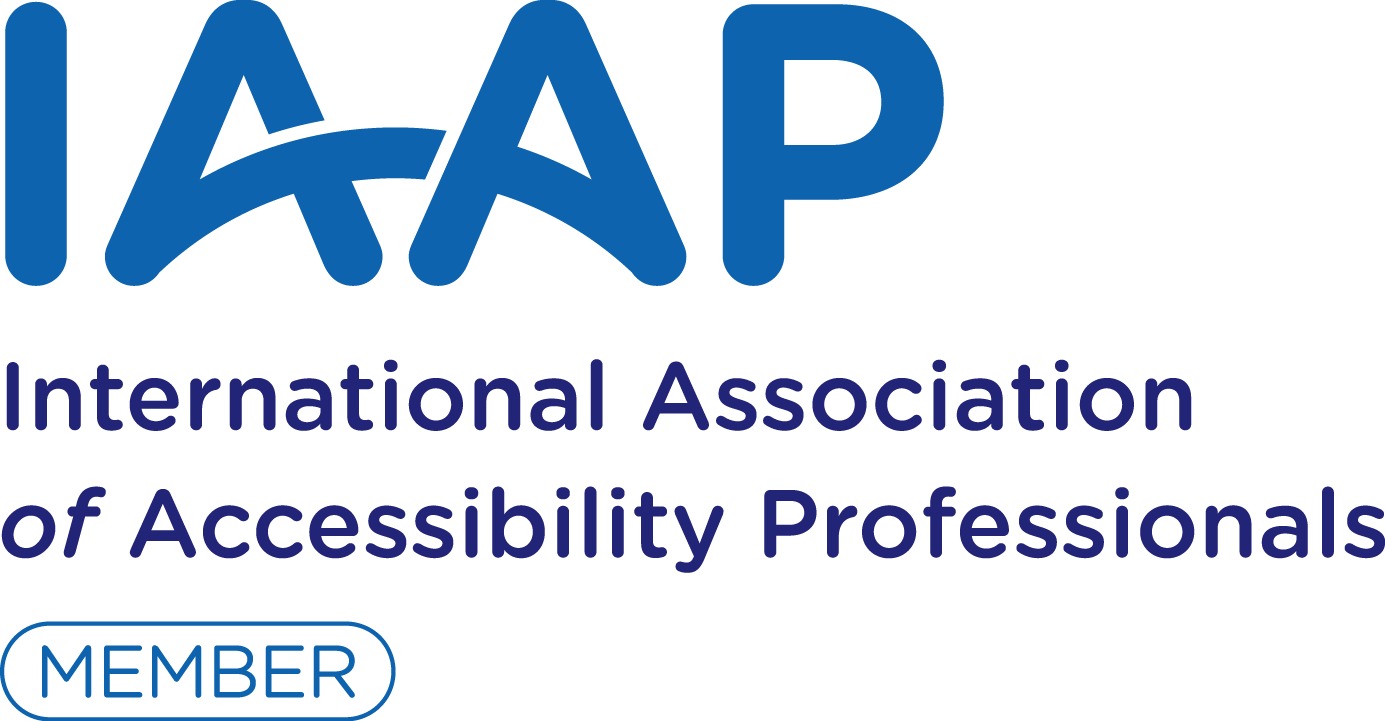
CPACC Certifications Completed!
We’re excited to announce that Peter Jewett and Pete Bruhn, our co-founders, have completed their International Association of Accessibility Professionals (IAAP) Certified Professional in Accessibility Core Competencies (CPACC) Certifications. Both are continuing to work towards IAAP Web Accessibility Specialist (WAS) Certifications, and another round of 5 team members are in the process of studying and preparing for their CPACC Exams. We know we’re throwing around a lot of acronyms, so keep reading.
About the International Association of Accessibility Professionals (IAAP)
From the IAAP website:
The mission of the International Association of Accessibility Professionals (IAAP) is to define, promote and improve the accessibility profession globally through networking, education and certification in order to enable the creation of accessible products, content and services.
IAAP is a division of the Global Initiative for Inclusive Information and Communication Technologies (G3ict). This is an initiative launched by the United Nations in 2006 Global Alliance for ICT and Development in cooperation with the Secretariat for the Convention on the Rights of Persons with Disabilities. This is pretty heady stuff, we’d recommend reading this UNICEF children’s book as a first step in understanding the UN Convention.
The IAAP is working to create a formal accessibility profession to help address many of the challenges that organizations face when trying to address the needs of employees and customers with disabilities. Here’s a list of the challenges they’re trying to solve, from the IAAP website:
- It is difficult to keep up with the constant pace of technology churn and innovation.
- There is not a broadly agreed upon understanding of what it means for technology to be accessible, nor is there sufficient guidance regarding how to make it accessible.
- Organizations are struggling to understand how to effectively procure accessible technology and integrate it with their internal systems and infrastructure.
- It is difficult to recruit personnel with expertise in accessibility because there is no established way to assess an individual’s knowledge and experience in this field.
About CPACC and WAS and CPWA Certifications
IAAP offers two main certifications. The IAAP Certified Professional in Accessibility Core Competencies (CPACC) and the IAAP Web Accessibility Specialist (WAS). Individuals that pass the test for the CPACC and WAS earn a Certified Professional in Web Accessibility (CPWA) credential.
IAAP Certified Professional in Accessibility Core Competencies (CPACC)
This is the first credential that’s available, it is a really top-level test that covers theoretical models of disabilities, universal design, assistive technology, universal design for learning, international accessibility law, management strategies, and more. We both found this to be a really eye-opening and informative exercise, it required a week of pretty intensive studying.
IAAP Web Accessibility Specialist (WAS)
This is the credential we’re working towards next. It’s meant to be a more technical certification that covers the knowledge skills required to implement and test WCAG guidelines and other web accessibility standards. We’re excited for the challenge of proving our technical chops as this is the work we’re doing every day at Accessible Web.
IAAP Certified Professional in Web Accessibility (CPWA)
Our goal is to have every member of the Accessible Web team have at least a CPACC Certification, and have every member that works on our client websites hold a CPWA. This is a large undertaking from a financial and time standpoint, but we strongly support the mission of the IAAP.
A common question we get from clients is “What makes your team qualified to audit and certify our website for accessibility? Once our team’s CPWA-certified, we’ll have a clear answer.
Onward!
